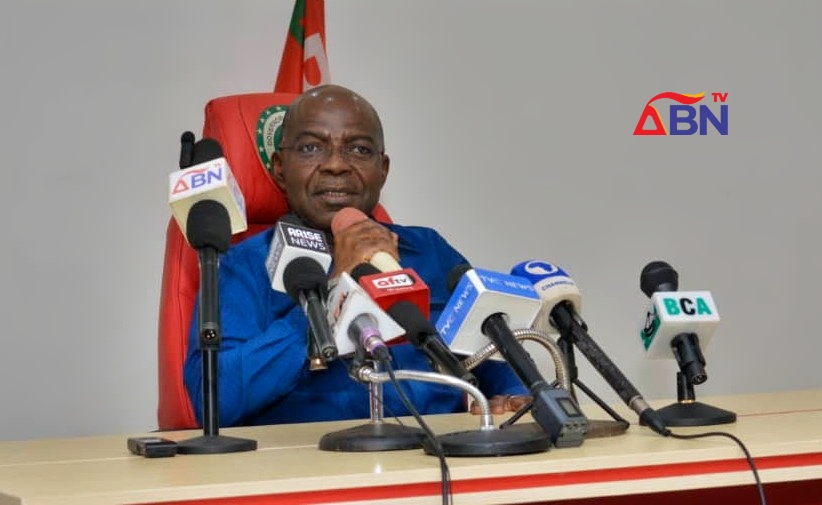631
By Tracy Moses
Abia State Governor, Alex Otti has described the ongoing 2025 Constitution Review exercise as a rare opportunity for Nigerians to reassess the nation’s structural challenges and steer it toward a more inclusive, efficient, and sustainable system of governance.
Speaking through his Deputy, Ikechukwu Emetu, at the South-East Zonal Public Hearing on the Constitution Review for Abia and Imo States held in Owerri on Saturday, Governor Otti emphasized the need for honest introspection, national unity, and practical reforms that transcend partisan interests.
He said Nigerians must embrace the responsibility of nation-building rather than expecting external forces to fix the country’s problems.
“Though we may still be far from the Nigeria we desire, history has shown us that no situation is beyond redemption. Real transformation, however, will not thrive in an atmosphere of distrust, defeatism, and indifference. We must rekindle faith in ourselves, our values, and the promise of this country,” he stated.
Addressing the increasing calls for the creation of 31 new states, Otti raised strong concerns about the financial and administrative consequences of such a move.
“While I understand the grievances that drive these demands, especially those rooted in marginalization, the economic burden would be overwhelming. Expanding the number of states without corresponding revenue or administrative efficiency will only lead to a more bloated and costly bureaucracy,” he cautioned.
Rather than multiplying states, he advocated for a governance system that is more inclusive and equitable, with fair distribution of resources and representation within the existing state structures.
Otti also lent strong support to the establishment of state police, calling it an urgent national necessity.
“Our current centralized policing model is no longer effective in tackling contemporary security challenges. I support the decentralization of policing, on the condition that clear frameworks for oversight, recruitment, coordination with federal structures, and respect for human rights are put in place,” he stressed.
On the issue of gender inclusion, the governor endorsed proposals for additional legislative seats for women, saying it would enhance women’s participation in politics. However, he warned against the possibility of the initiative being manipulated.
“Political parties must be restructured to allow competent women without political godfathers or affiliations to emerge. If we fail to do this, we risk empowering male politicians to plant proxies rather than real female voices,” he said.
Otti was also cautious about granting full autonomy to local governments, warning that it could inflate the cost of governance if not carefully managed.
“While the intent behind local government autonomy is laudable, we must consider whether it means building hundreds of new administrative agencies at the grassroots, which may strain already limited public funds and worsen inefficiencies,” he said.
Drawing from earlier conversations with commissioners for budget and economic planning, Otti questioned the rationale for replicating state-level education and health structures at the LGA level.
“We must decide between growing a governance model that swallows scarce funds and creating a lean, effective public service system that delivers real value,” he asserted.
The governor also backed the idea of enshrining free and compulsory basic education as a constitutional right, emphasizing the importance of ensuring the policy is not just symbolic.
“Education is a fundamental right and a driver of progress. But for it to be meaningful, we must commit more resources to teacher development, school infrastructure, and overall quality delivery,” he noted.
According to Otti, the goal of the constitutional review should be to make adjustments grounded in the Nigerian context, rather than chasing theoretical ideals.
“The 1999 Constitution, despite its flaws, has guided us for over two decades. We’ve now accumulated enough experience to correct what has not worked and consolidate gains where progress has been made,” he explained.
He noted that Nigeria has amended its Constitution five times since 2010, reflecting an ongoing commitment to refining its foundational laws in line with changing realities.
“This process of constant review and reform is a sign that we are not afraid to question the status quo and pursue a better system. That in itself is commendable,” Otti concluded



